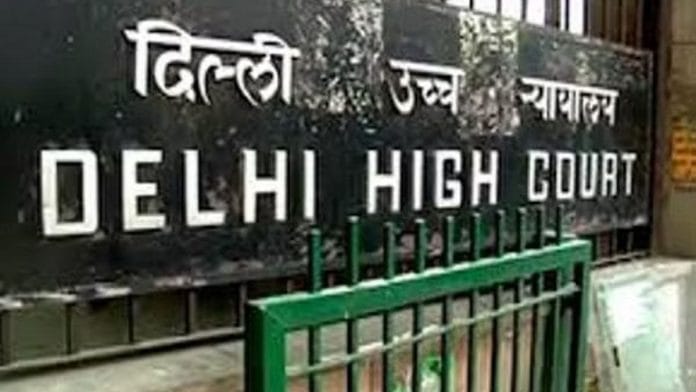New Delhi: The Delhi High Court Wednesday issued a notice to the Centre and the Union Public Service Commission on a plea challenging no reservation for blind and low-vision candidates in the annual Combined Medical Services Examination for selecting medical officers in government organisations.
Hearing a plea filed by disability rights non-profit Mission Accessibility, a bench of Chief Justice D.K. Upadhyay and Justice Tushar Rao Gedela sought the responses of the UPSC, the Department of Personnel and Training, the Ministry of Health and Family Welfare and the Department of Empowerment of Persons with Disabilities.
The NGO pointed out that under Section 34(1)(a) of the Rights of Persons with Disabilities Act, 2016, all government establishments have to reserve at least 4 percent of the total number of vacancies for persons with benchmark disabilities, of which at least 1 percent must be reserved specifically for persons with blindness and low vision.
Following a brief hearing Wednesday, the case was listed for hearing on 3 December.
Mission Accessibility counsel Rahul Bajaj told the bench the exclusion of those with blindness and low vision from the CMS Exams is contrary to the mandate laid down under Section 34(1)(a) of the RPwDs Act.
“Such anomaly needs to be rectified before the release of the notification of this exam in 2026,” Bajaj told the court.
The case originated from the non-selection of Vignesh Balaji, a candidate with blindness/low vision, who was not called in for the interview round of the medical exam in 2024, despite, as claimed in the plea, clearing the written test with the minimum required marks in his category.
“In a country where there is a well-acknowledged shortage of medical professionals, there is no rational basis to exclude doctors with blindness or low vision—especially those who have duly completed their MBBS degrees and compulsory internships—from service opportunities,” Balaji argued in the plea.
Also Read: SC strongly slams NMC’s ‘both hands intact’ rule for MBBS aspirants with disability. What it said
What is benchmark disability?
A ‘person with benchmark disability’ means someone with at least 40 percent specified disability. Those with less than 40 percent disability are also included in the Rights of Persons with Disabilities Act, 2016, as long as their specified disability is defined in measurable terms, and is certified by a certifying authority. The act recognises a total of 21 types of disabilities.
However, Section 34(1)(a) contains an exception which essentially exempts the government from granting such reservation for any establishment or post, only when certain conditions are met. Such exemption can be made by a notification, after due consideration.
How present case came to court
Balaji had appeared in the 2024 CMS Examination after completing his MBBS degree. When he was not called for the interview, Balaji’s father wrote to the UPSC, highlighting his case. When there was no response to the letter, Balaji moved the Delhi HC in September.
Balaji is a 2019-batch MBBS student and his final-year exam was in 2024. His results came in May 2024. He completed his internship between May 2024 and May 2025. He got his degree certificate in July 2025.
Saying that the RPwD Act, 2016, was passed with the intention of fostering greater inclusion for persons with disabilities, the plea said the notices for the last two CMS exams showed that out of the total 1,532 vacancies, seats were reserved for persons with disabilities, but there was no reservation for the blind or low-vision candidates.
“This non-reservation constitutes a direct and blatant violation of Section 34 of the RPwD Act. Pertinently, reservation is granted to other categories of disabilities, such as locomotor disabilities, and there is no valid basis for the exclusion of those with blindness and low vision,” the plea said.
Dubbing this as a violation of Articles 14 (right to equality) and 21 (right to life), the plea argued that such blanket non-reservation, without any statutorily valid exemption process, defeats the very object and purpose of the RPwD Act.
It also entrenches systemic discrimination against persons with visual disabilities, it said, adding it’s important to comply with the law’s mandate to secure substantive equality and effective participation of PwDs in public life.
(Edited by Ajeet Tiwari)






